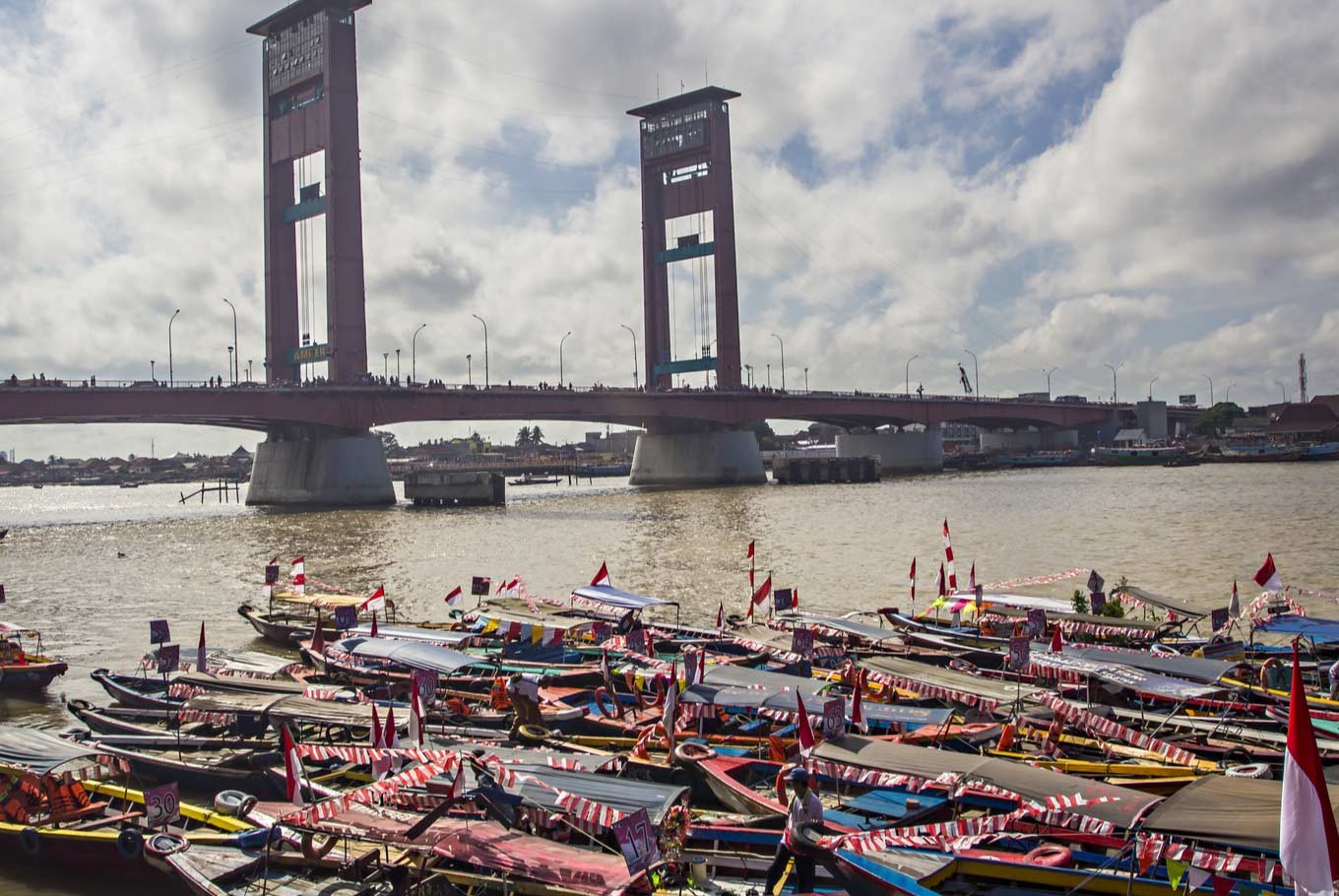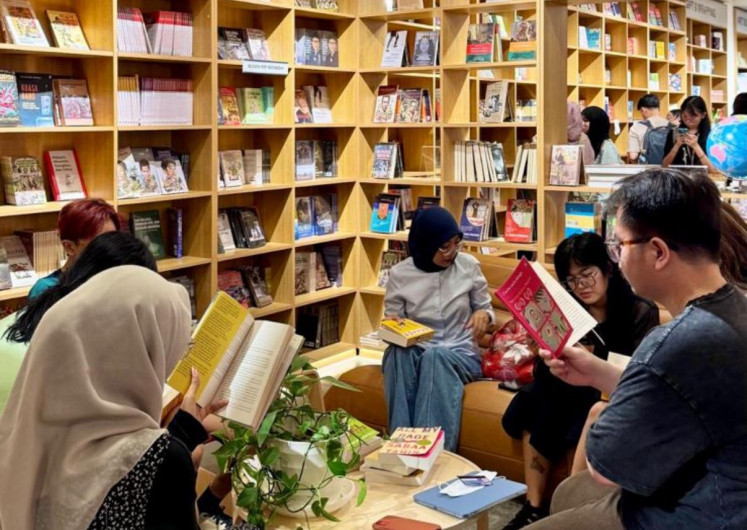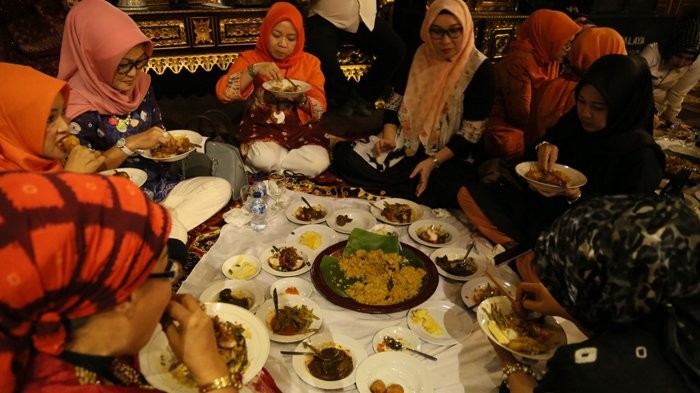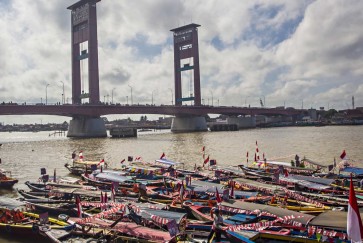Popular Reads
Top Results
Can't find what you're looking for?
View all search resultsPopular Reads
Top Results
Can't find what you're looking for?
View all search resultsPalembang eyes UNESCO recognition for dining tradition
Until now, Arab descendants who live in near the Musi River in Palembang still maintain this tradition of dining together.
Change text size
Gift Premium Articles
to Anyone
A
number of young men and women dressed in Palembang's traditional Malay clothing lined up behind the main hall door of the Sultan Mahmud Badaruddin II Museum in Palembang, South Sumatra, on Nov. 26.
Each of them brought a dish for a typical Palembang banquet. There was a tray of rice and side dishes, a bronze teapot for washing hands, a cup of tea as well as a piece of cloth for use as a dining mat.
When the event started, the food bearers walked toward the guests, who were sitting with their legs crossed. This tradition of carrying dishes is known as ngobeng.
Next, accompanied by Malayan music, the dishes were served to form several groups. Each group of dishes was meant for eight people. Groups of men were separated from groups of women.
Before dining, guests’ hands were washed by a youngster using the bronze teapot. This is because the dishes were to be consumed without using any cutlery. This banquet, full of togetherness, is called ngidang.
Palembang Culture Agency's history and tradition head Ismail Ishak told The Jakarta Post that the ngobeng-ngidang tradition was held to introduce the interesting dining culture of Palembang to the young generation as it has a deep philosophical meaning.




















